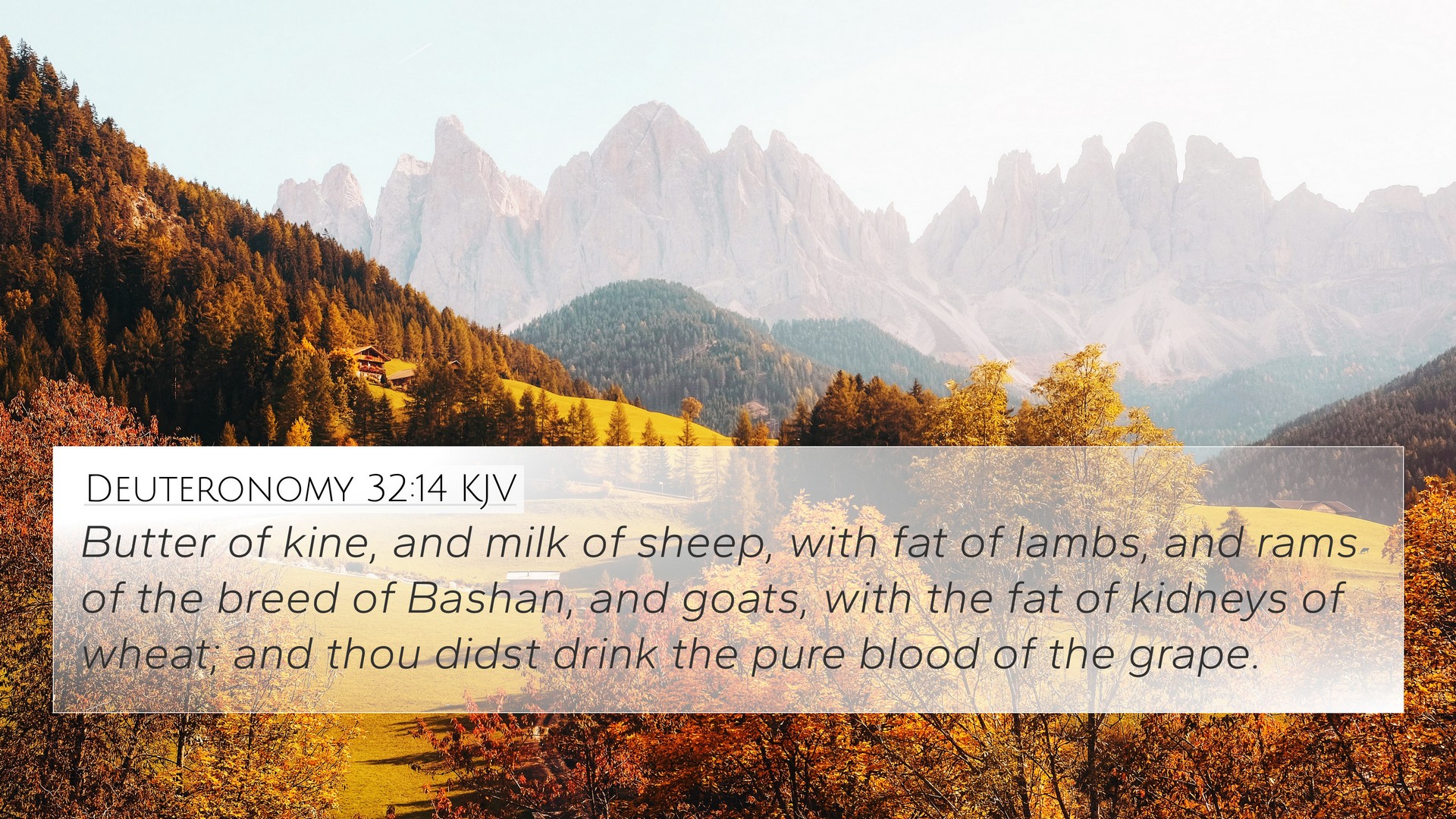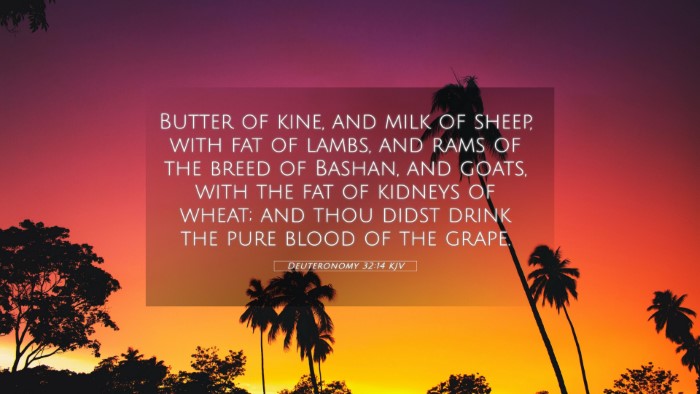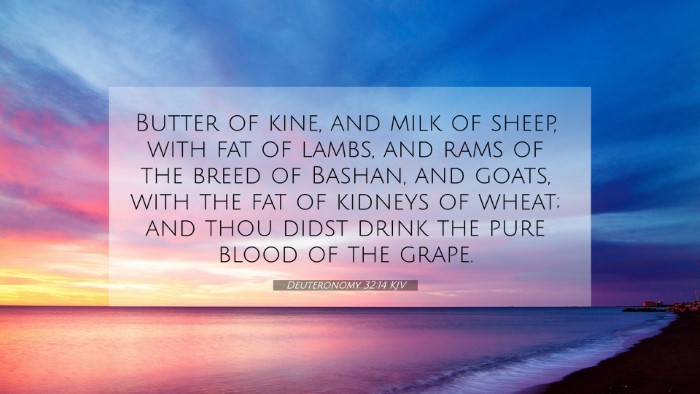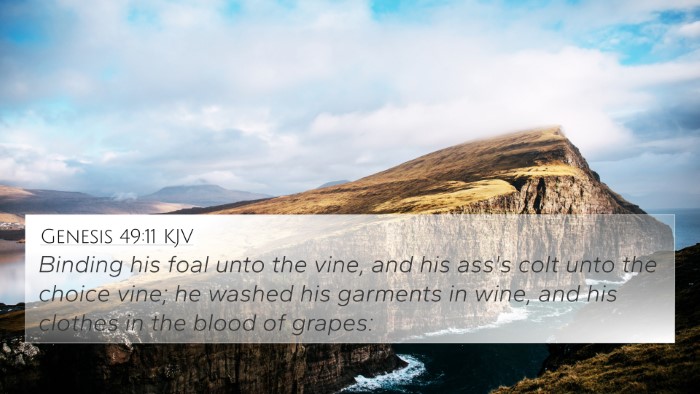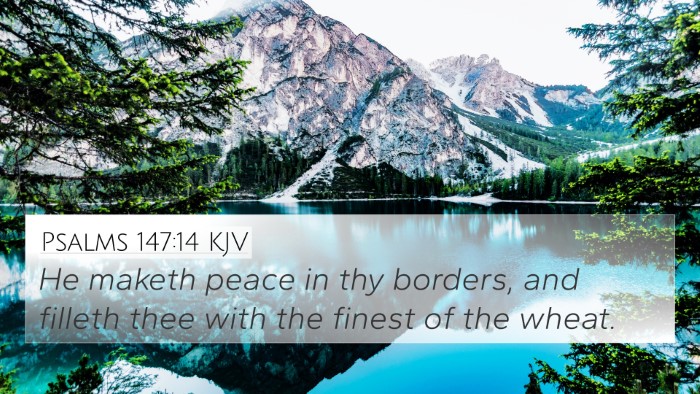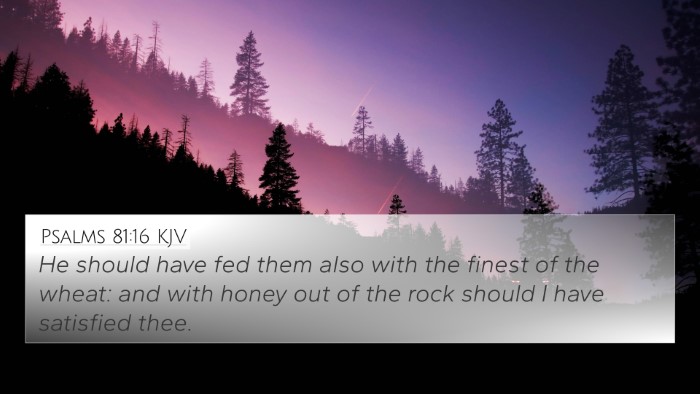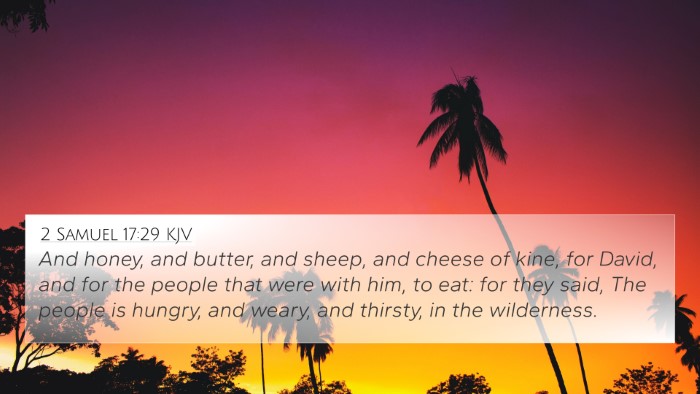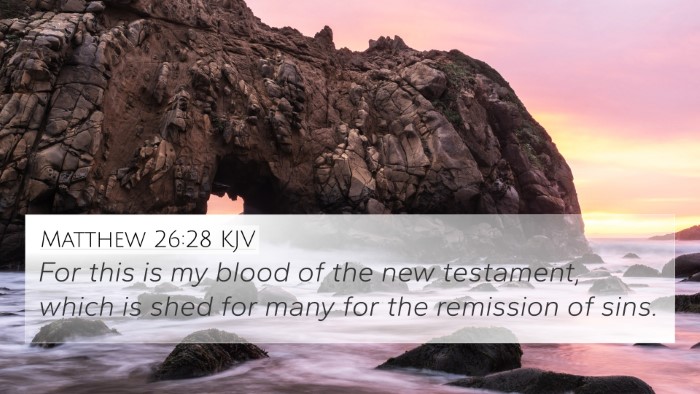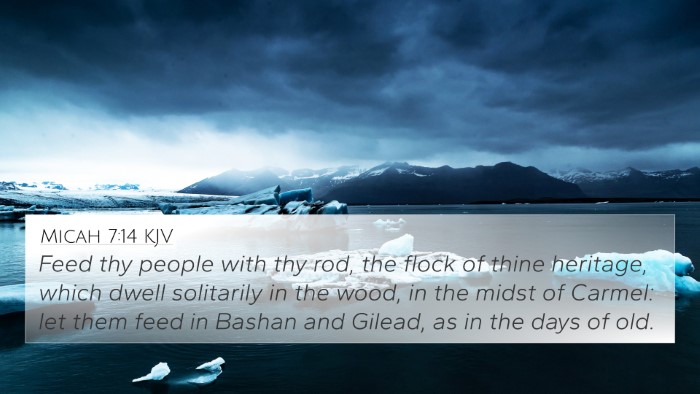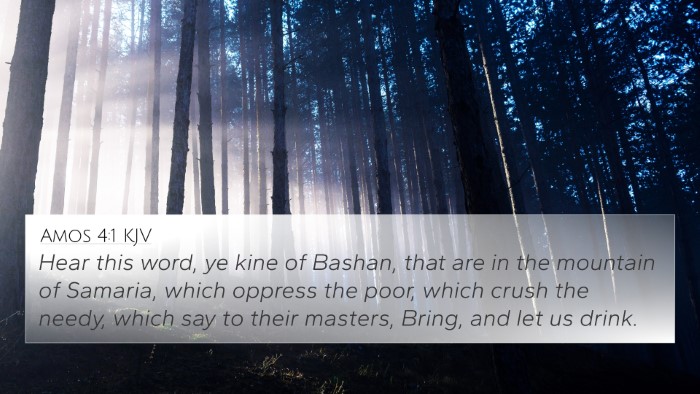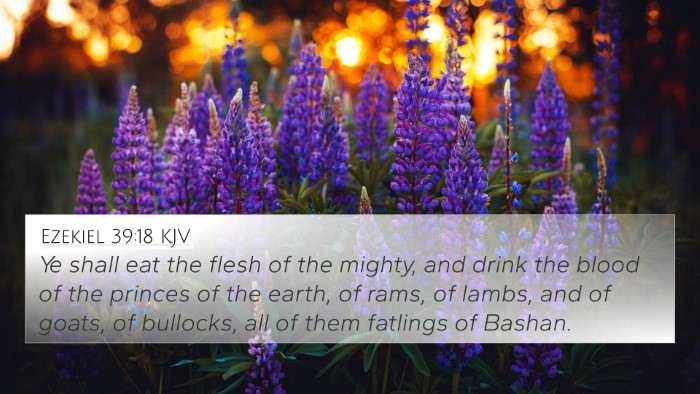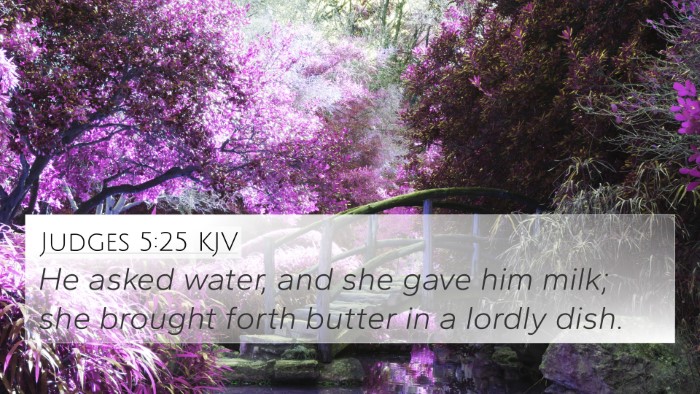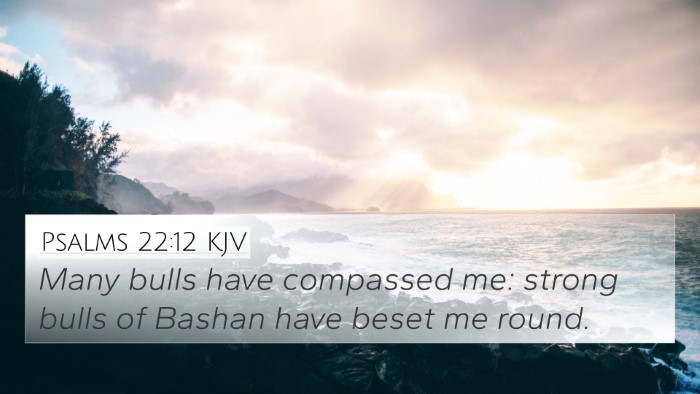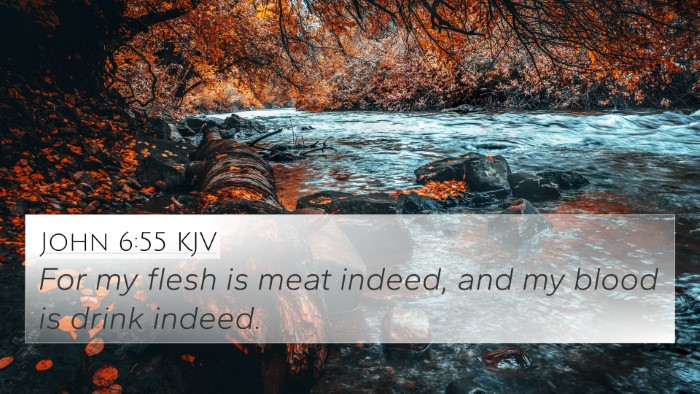Understanding Deuteronomy 32:14
Deuteronomy 32:14 states: "Curds from the herd, and milk from the flock, with fat of lambs, and rams, the breed of Bashan, and goats, with the finest of the wheat— and you drank wine, the blood of the grapes." This verse reflects God's provision and blessings upon His people, emphasizing both physical sustenance and spiritual richness.
Commentary Insights
To grasp the meaning of this verse, we can look at insights from notable public domain commentaries:
Matthew Henry's Commentary
Henry emphasizes that this verse illustrates the abundance of blessings God provided to the Israelites. He notes that the mention of curds and milk signifies nourishment and care, while the reference to the "finest of the wheat" symbolizes the spiritual blessings and richness of God's kingdom.
Albert Barnes' Commentary
Barnes draws attention to the richness of the land that the Israelites were to inherit, implying that these provisions were not mere physical sustenance but also a representation of God’s generous character. He suggests that the verse serves as a reminder to the Israelites of their dependence on God for both their physical and spiritual needs.
Adam Clarke's Commentary
Clarke notes that the variety of food mentioned points to the usual delicacies enjoyed in times of prosperity. He indicates that this passage emphasizes God’s good gifts and the essential nature of recognizing divine blessings in our daily lives.
Key Themes and Connections
This verse resonates with several important themes within the Biblical narrative:
- Divine Provision: God's ability to provide abundantly for His people is a recurring theme in Scripture.
- Spiritual Nourishment: The rich symbolism of milk and wine points not only to physical sustenance but also to spiritual enrichment.
- Gratitude: Recognizing and being thankful for God's blessings is a vital aspect of the faith journey.
Cross References
The following are important Bible cross-references related to Deuteronomy 32:14:
- Psalms 36:8-9: "They feast on the abundance of your house; you give them drink from your river of delights."
- James 1:17: "Every good gift and perfect gift is from above, coming down from the Father of lights."
- Philippians 4:19: "And my God will supply every need of yours according to his riches in glory in Christ Jesus."
- Matthew 6:26: "Look at the birds of the air; they neither sow nor reap nor gather into barns, and yet your heavenly Father feeds them."
- John 10:10: "I came that they may have life and have it abundantly."
- Isaiah 55:1: "'Come, everyone who thirsts, come to the waters; and he who has no money, come, buy and eat! Come, buy wine and milk without money and without price."
- 1 Peter 2:2: "Like newborn infants, long for the pure spiritual milk, that by it you may grow up into salvation."
Comparative Bible Verse Analysis
Analyzing Deuteronomy 32:14 in connection with other scriptures provides a deeper understanding:
By examining the common themes throughout these verses, one can see how God’s generous provision permeates the Scriptures. For example, Psalms 23:1 states, "The Lord is my shepherd; I shall not want." Both verses affirm God's role as a provider, assuring believers of His care amidst life's challenges.
Similarly, Luke 12:30-31 echoes this sentiment when Jesus states, "For all the nations of the world seek after these things, and your Father knows that you need them. Instead, seek his kingdom, and these things will be added to you." Such comparisons reveal a consistent message of reliance on divine providence.
Practical Applications
Understanding Deuteronomy 32:14 and its insights is crucial for daily living:
- Recognizing Blessings: One should practice gratitude for God's many blessings in both physical and spiritual forms.
- Trusting in Provision: Believers can trust that God will provide for their needs, both material and spiritual, and that His provision is sufficient.
- Encouraging Others: Sharing this understanding with others can lead to a greater appreciation for God’s faithfulness.
- Incorporating Prayer: Prayer for provision, reflecting on God's past faithfulness, enhances our hearts' receptivity to His continuous blessings.
In a world where we often seek physical sustenance, Deuteronomy 32:14 urges believers to remember the profound spiritual reality of God’s provision. By making connections and conducting a comparative Bible verse analysis, we can deepen our understanding of God’s character and His promises throughout the entirety of Scripture.
Conclusion
Deuteronomy 32:14 not only highlights God's provision but also sets the stage for understanding the broader narrative of God's relationship with His people. By engaging with this scripture through the lens of commentary insights, thematic connections, and cross-references, believers can cultivate a richer faith and a deeper understanding of the myriad ways God provides for His followers.
